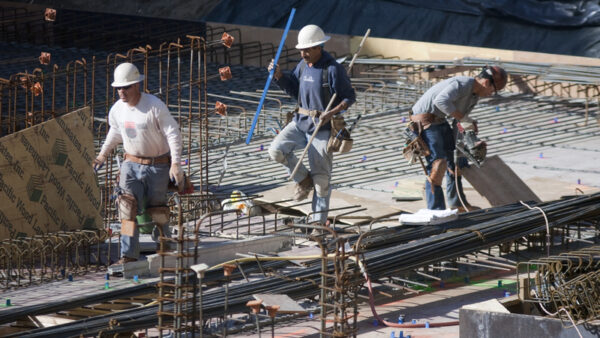Emergency surveys have revealed construction flaws in all of the 17 schools closed over safety concerns at the start of this week in Edinburgh, Scotland.

Gracemount High, one of the Edinburgh schools found to have construction flaws
The faults are serious enough to keep some schools shut for the rest of the school year and into the summer, a source has said.
Revelations of widespread faulty construction came yesterday as school staff and city officials struggled with the logistical challenge of accommodating 5,900 pupils, with many in high school facing national exams next month.
Citing breach of contract conditions, Edinburgh City Council is now refusing to pay the £1.5m ($2.1m) due this month to the private owner, Edinburgh Schools Partnership (ESP), which built the schools under a public-private partnership (PPP) deal approximately 10 years ago.
UK contractor Galliford Try, meanwhile, has said it has contractual responsibility for four of the 17 schools thanks to its 2014 acquisition of Miller Construction, one of the joint-venture partners in the PPP project.
Edinburgh City Council Leader Andrew Burns said yesterday that the council had received “early indications that suggest evidence of faults across all 17 affected schools to a varying extent”.
“At the moment it is too early to say what the impact will be as full survey results from Edinburgh Schools Partnership have not been yet been received. Some faults may be easy to fix and may not present a major problem while others could be longer term,” Burns said.
He added: “What is certain is that we won’t take risks with the safety of our schools children and schools won’t reopen until Edinburgh Schools Partnership can assure us of their safety.”
For some schools it’s going to be the summer. Some of them might be closed until August
Construction flaws include missing header ties, which would require comprehensive intervention to put right. One source told the Edinburgh Evening News: “For some schools it’s going to be the summer. Some of them might be closed until August.”
The city council is now understood to be preparing for a major claim against ESP. Council officials said yesterday they would withhold the latest £1.5m instalment of the private finance charge, invoking their legal rights under the contract.
“We will not be paying them that this month,” a council spokesman told newspaper The Guardian. “We’re applying all the contractual terms, and those include deductions for non-availability [of the schools].”
According to The Guardian the real lifetime cost of the schools contract will reach £529m in cash terms by 2032, nearly 50% more than the original costing of £360m.
The affair has drawn widespread criticism of the PPP procurement method, with Scotland’s largest teaching union calling this week for a review of all PPP contracts in Scotland.
Photograph: Gracemount High School, one of 17 Edinburgh schools found to have construction flaws (© Kay Williams and licensed for reuse under this Creative Commons Licence)
Comments
Comments are closed.







Well said Mark. This is clear evidence that PPP doesn’t work. This is only Scotland. What happens when they expose what has gone on in England. I have never been a lover of Clerk of Works employed by the client but this fiasco makes me realise the importance of an independent body with clout that is there to check the specification and quality. It could come to late now and I think this could mark the beginning of the end for PPP.
PFI and PPP schemes for funding construction have a very important role in the provision of buildings and structures to provide public services and it is very important to separate the funding scheme from the defective building work.
A failure in the buildings has absolutely nothing to do with the PFI/PPP scheme, it is all to do with bad supervision and bad construction, which can happen on any building project, whether funded traditionally or by PFI/PPP, if the supervision is inadequate.
The profit motive is no different on a normally funded project from the funding on a PFI/PPP project.
Let’s get this problem in perspective. How many of the £52+ billion of PFI contracts have had problems like this?
One question? Where was the Clerk of Works? Oh, I forgot, we don’t have them anymore. Time they were brought back.
Once again we appear to be looking at evidence of the failure of the most basic quality control process to deliver a finished product that is fit for purpose. It is time the industry realised that it is false economy to cut corners on quality control and that the long term cost in terms of both financial and reputational damage does not justify the short term gain from allowing sub-standard work to be accepted.
Are we surprised, as no one appears to be ultimately responsible these days, everyone passes the buck. We have, architects, consulting engineers, clerks of works, building inspectors, site agents, site engineers, site foremen, professional bodies giving professional institute qualifications to their members, All responsible for ensuring that the building is constructed in accordance with the drwgs. & specifications. Yet although all these professionals are directly involved & responsible for the construction process, all have sumarly failed to ensure that this basic requirement of the construction contract is adhered to! It’s a wonder that anything is structurally sound today & we thought this could only happen in the third world! Heads should roll. Richard Moore. MCIOB.
The Tories are always looking to privatise things, I think it is about time that Councils were able to set up their” Works Department” again as everything was done much better and the skill level was much greater, because the tradesmen had a future and could be taught over many years, where as now, everyone is a builder !!!
These big companies are only interested in profit and nothing else. And the Government is seduced by the lowest price possible, which always backfires.
It is just like the Olympic Park, it costs £200 million pounds to remove Japanese Knotweed, only to find the job had not been done correctly and another firm have had to come in and rectify the mistakes of the previous company, which is now, of course, in administration, with the Directors probably living it up in the Bahamas at taxpayers expense.
Now that the full scope of the damage is known (much more than £1.5M) then its up to the arbitration process to decide who is to blame. Will an RCA actually blame the Politicians? I think we should be aware that all parties signed up to both the PPP in Scotland and also the PFI in England and Wales.
Cost or rather money is undoubtedly the root issue but if it is just Wall ties this is fundamental to any traditional build and is unlikely to be left off the tendered cost or the specifiers bill but more likely to be supervision on site.
The best you will get is that the taxpayer doesn’t pay for all of it, no doubt the LA is not faultless. Civil action however wont be enough as this had Health and Safety implications although fortunately the defects were noticed before anyone was injured.
Where was the independent supervision in the shape of the Clerk of Works? They would not have missed such a basic construction requirement in brick construction.
I believe Richard Moore has got it wrong. In this case there is no doubt about where the responsibility for standard of construction lies and no option for the PPP/PFI partnership to claim that some supervisor (Clerk of Works, inspecting Architect or Structural Engineer) can be drawn into the blame process – which is already under way, ill informed and politically motivated as it is already sounding. With clear lines of responsibility the assessment of what has gone wrong is more easily focused I believe. The construction industry has serious problems about achieving quality, training of trades people, continuity of employment, quality of supervision etc It is to be hoped that the Edinburgh schools’ potential for disaster will at last lead to a fundamental review of all the factors which have led to the closures. However, to make my own political point, the enquiries into Edinburgh’s other contributions to serious concerns about construction of public facilities (Parliament and trams) are showing how lawyer driven reviews fizzle out to virtually nothing and no ‘lessons’ are learned and applied to future projects or procedures. Perhaps the schools can lead to an improvement in drawing and applying conclusions.
Until such time as the designs and specifications are examined against the as-built condition, there is nothing to suggest these defects relate to the method of procurement any more than to simple, and lamentably, poor construction design, execution or oversight. My experience of PFI indicates that Lenders have a very keen interest in the quality of design and in proper execution; ensuring their loan repayment is not compromised by such claims against the borrower. An independent design review as well as works inspector(s) and/or tester(s) would likely have been ‘imposed’ under the PFI project documentation, and this ought to provide additional quality assurance, rather than derogate from normal trade skill and experience, site management and the oversight of a CoW (or equivalent). Fully investigate, but without prejudice.